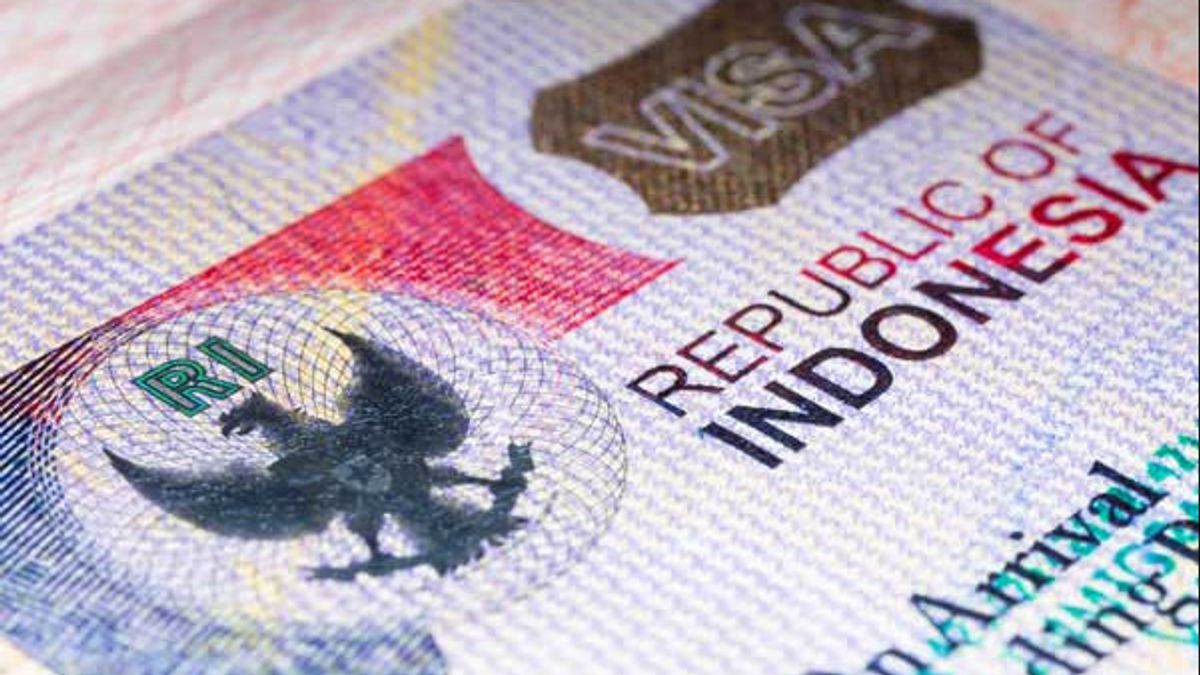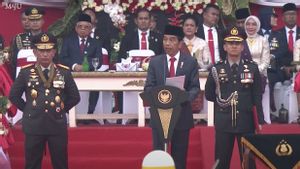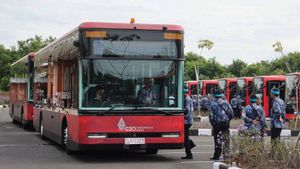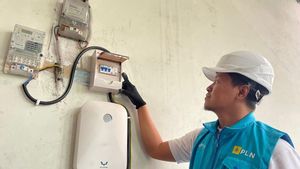JAKARTA - In the midst of efforts to increase state revenue through the tourism sector after the COVID-19 pandemic, the Indonesian government made decisions that provoked pros and cons by temporarily revoking the free visit visa (BVK) of 159 countries to enter Indonesia.
The policy was ratified on June 7, 2023, as stated in the Decree of the Minister of Law and Human Rights of the Republic of Indonesia Number M.hh-GR.01.07 of 2003.
Before being revoked, a total of 169 countries were included in the list of visa-free recipients for visits along with 10 Southeast Asian countries. However, with the temporary revocation of the BVK, currently, only 10 ASEAN member countries have visa-free facilities, namely Brunei Darussalam, Philippines, Cambodia, Laos, Malaysia, Singapore, Thailand, Timor Leste, and Vietnam.
The visa policy that is revoked is only a visa-free policy of visitation and not a visa on arrival (VOA).
Free-of-visit visas are given to foreign tourists with a maximum stay period in Indonesia of 30 days and cannot be extended. Tourists who come free of visit visas are required to show a valid passport for at least six months to immigration officers and tickets to leave Indonesian territory.

While VoA can be extended once with a duration of 30 days after spending 30 days earlier.
Of course, it is not without reason that the policy to temporarily suspend BVK is by the Minister of Law and Human Rights (Menkumham), Yassonna Laoly.
There are at least two main reasons behind this decision. The first is because of the issue of public order disturbances, as stated by the Sub-Coordinator of Public Relations of the Directorate General (Ditjen) of Immigration of the Ministry of Law and Human Rights, Achmad Nur Saleh.
The second reason BVK's temporary revocation policy for 159 countries is due to the spread of disease from countries that have not been declared free from certain diseases by the World Health Organization or WHO.
"On the basis of these considerations, this Ministerial Decree was determined," said Achmad in his official statement.
Regarding public order disturbances, we can highlight how disturbing the actions of foreign tourists in Bali, especially Russian tourists. Tourists who acted on the Island of the Gods had gone viral on social media. Starting from complaining about the sound of chickens, being reckless when riding motorbikes, and wearing fake vehicle number plates, to becoming illegal workers on the Island of the Gods.
The behavior of tourists from Russia in Bali is what makes residents furious, not to mention the news of a Russian village in Bali, precisely in Canggu and Ubud, last March.
Minister of Tourism and Creative Economy Sandiaga Uno did not remain silent with the news of the rampant cases of foreign tourists acting in Bali. In order to make Bali a safe and comfortable tourist destination, Sandiaga Uno formed a Task Force or Task Force to curb foreign tourists who often act in Bali.
"We hope that the units under this Task Force will provide a firm narrative in enforcing the law, providing supervision, and we ensure that our tourism recovery targets quality tourists," Sandi said some time ago.
Therefore, with the temporary revocation of BVK, it is hoped that tourists who visit Bali, or Indonesia in general, will be more 'quality' so that they can minimize the possibility of tourists causing trouble in the country.

Although it is considered to be able to reduce the risk of security disturbances, on the other hand, the BVK's temporary elimination policy for 159 countries has also raised concerns that it will reduce foreign tourist visits to Indonesia. In fact, as is known, Indonesia is intensively promoting the tourism sector after sluggish due to the pandemic for the past two or two years.
The tourism sector died when flights from abroad were closed. Not a few hotels and tourist attractions were forced to go out of business because they could not withstand the pandemic.
As COVID-19 cases hit, the Indonesian government began working hard to attract foreign tourists to travel to the country and aggressively promote to various countries. The government targets foreign tourist visits this year to reach 8.5 million, an increase from the previous year which was only 7.4 million foreign tourists.
This refers to the number of visits in the first quarter, January to March 2023, which recorded 2.25 million foreign tourists visiting Indonesia.
The government is also targeting an increase in tourism foreign exchange by 10 billion US dollars, in addition to an increase in the number of foreign tourist visits. This figure is up to 4 billion US dollars from the previous year.
Stay Optimistic
However, the Deputy for Tourism and Creative Economy of the Coordinating Ministry for Maritime Affairs and Fisheries of the Republic of Indonesia, Odo RM Manahutu remains optimistic that the policy to temporarily suspend BVK for 159 countries will not affect foreign tourist visits.
He mentioned that the government has provided alternatives in the form of Visa on Arrival (VoA) to countries that previously received visa-free facilities. Odo hopes that the VoA facility will not have a significant impact on foreign tourists visiting and tourism foreign exchange.
"This means that foreign tourist visits can still be done, only with a slightly different procedure," said Odo.
Sandiaga Uno also conveyed the same thing, which cools public concerns about the decline in foreign tourist arrivals after the BVK's temporary revocation policy for 159 countries.
"So if we can guard the momentum of this revival, we can reach above 8.5 million (visiting foreign tourists)," said Sandiaga Uno at the 2023 Indonesian Tourism Industry Association I (GIPI) in Jakarta, Tuesday (23/5).

In fact, whatever policy is taken by the Government of Indonesia must provide benefits. And, this is what President Joko Widodo emphasized.
In the midst of the policy of visa-free revocation of 159 countries that caused differences of opinion, Jokowi emphasized that there would be no benefits for the state to evaluate.
"There must be an evaluation, we used to open it completely. The evaluation provides benefits to the state, no? If you don't have to, oh, this is not, does this country need to be opened or closed? It must be evaluated," said the president after reviewing and monitoring the prices of a number of basic necessities at Parungpung Market, Bogor.
On the same occasion, Jokowi also emphasized that Indonesia is not the only country to do this. "All countries are like that. There are evaluations and benefits," added President Jokowi.
另请阅读:
The English, Chinese, Japanese, Arabic, and French versions are automatically generated by the AI. So there may still be inaccuracies in translating, please always see Indonesian as our main language. (system supported by DigitalSiber.id)


















